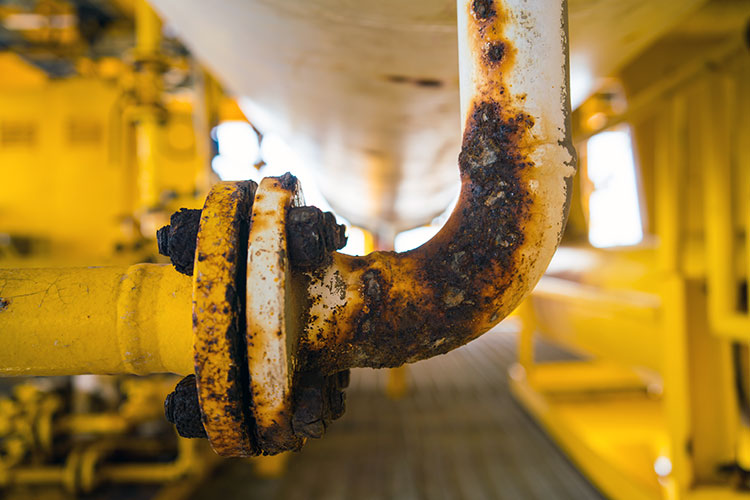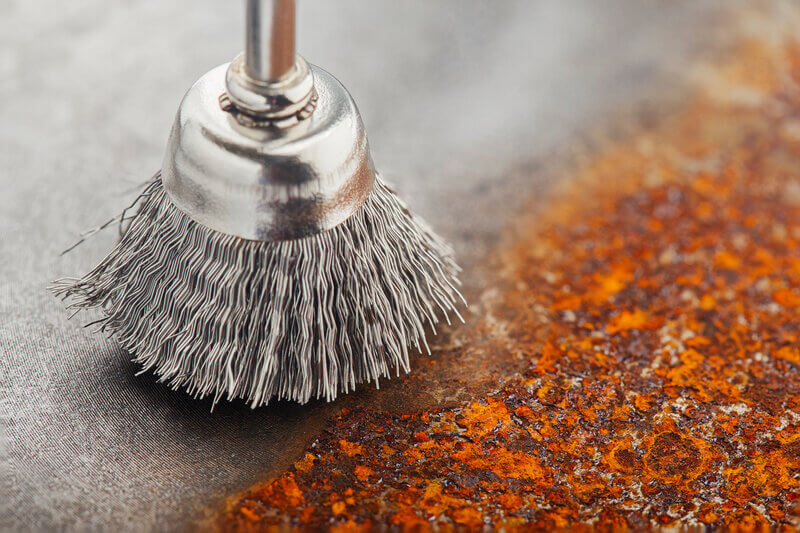Any factory that processes foods needs to be maintained at the highest level. The food industry is heavily regulated and requires strict standards for hygiene and safety. This is why food processing facilities are audited regularly.
Taking steps to prevent corrosion is an essential part of facility maintenance. It helps to keep machinery and equipment up to standard and the risk of contamination minimal.
What is corrosion?
Corrosion is the gradual degradation and ruin of materials (usually metals) as a result of their exposure to different environmental conditions.
As metal reacts with the surrounding environment, i.e. moisture, oxygen, salt, and chemicals, it starts to break down, leading to the formation of rust and other corrosive products.
Corrosion can cause significant damage to equipment, such as pumps, storage tanks, and conveyor systems, leading to costly repairs and replacements. In the food industry, corrosion can be disproportionately disastrous.
If food is contaminated at the source, the effects can be felt globally. People may become seriously ill or even die.

Why food processing facilities are at high risk of corrosion
Corrosion is a widespread problem affecting many industries, including construction, transportation, energy, and manufacturing. However, for the food processing industry, it is a more common – and deadly – problem.
Food processing facilities are at high risk of corrosion because of the typical presence of moisture, high temperatures, harsh cleaning chemicals and bacteria.
The combination of all these things creates a highly corrosive environment. This causes damage to equipment and facilities in even the shortest timespan.
How do you prevent corrosion?
Effective corrosion prevention starts at the blueprint stage. Carefully designing a facility, using appropriate corrosion-resistant materials, and adding barrier protection from the very start is the best way to prevent corrosion.
Coating metal surfaces with epoxy or galvanising paint also helps fight the effects of corrosion. Still, prevention is better than cure. Using stainless steel for storage tanks and piping can help reduce the risk of corrosion in the first place, and provide a surface that is easy to clean and sanitise.
The extensive use of high-pressure water and steam in food preparation is one of the biggest contributing factors to corrosion. Regular maintenance and inspection of equipment are important, along with monitoring moisture and temperature environments.
Proper storage and handling of corrosive chemicals, such as cleaning agents and food additives are also important. Correct staff training when handling these agents is vital.
Corrosion prevention is essential to avoid equipment failures resulting in costly downtime. When it comes to food preparation, it’s especially important as people’s lives are at stake.

How we can help
The cost of corrosion to the global economy is estimated to be billions of dollars each year, with corrosion-related repairs and replacements being a major contributor.
But the cost of human life due to food contamination is higher.
The World Health Organisation estimates that 1-in-10 people worldwide will fall sick from contaminated food, with almost half a million deaths each year.
If you run a food processing plant, then preventing contamination should be number one on your list, and we can help.
Our Food Safety Cleaning service is just one way we can ensure your premises are up to strict Health and Safety standards.
We remove any form of corrosion on your machinery, from tanks and silos to conveyor belts and pipes. We stop rust from forming with our specialised industrial paint and sanitise all surfaces, nooks and crannies.
But it’s not only rusting our special audit clean takes care of. We provide a deep clean of your entire plant or separate sections at a time, removing dust build-up, grime and grease residue. Nothing is overlooked.
Contamination from corrosion is avoidable. There’s no reason your business should ever be responsible for anyone getting sick.
Contact us today, and let’s have a chat about how we can help you meet the stringent requirements of New Zealand Health and Safety Standards.

